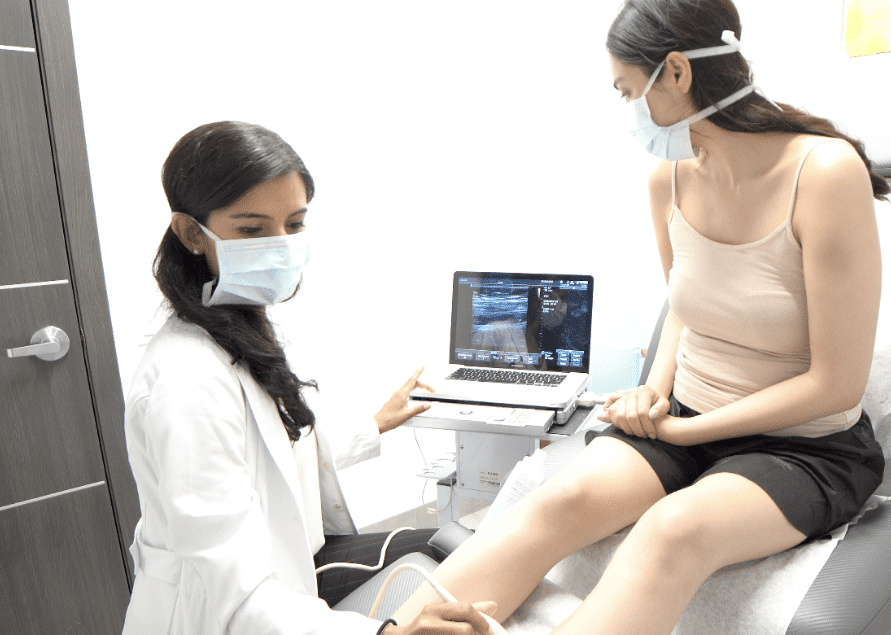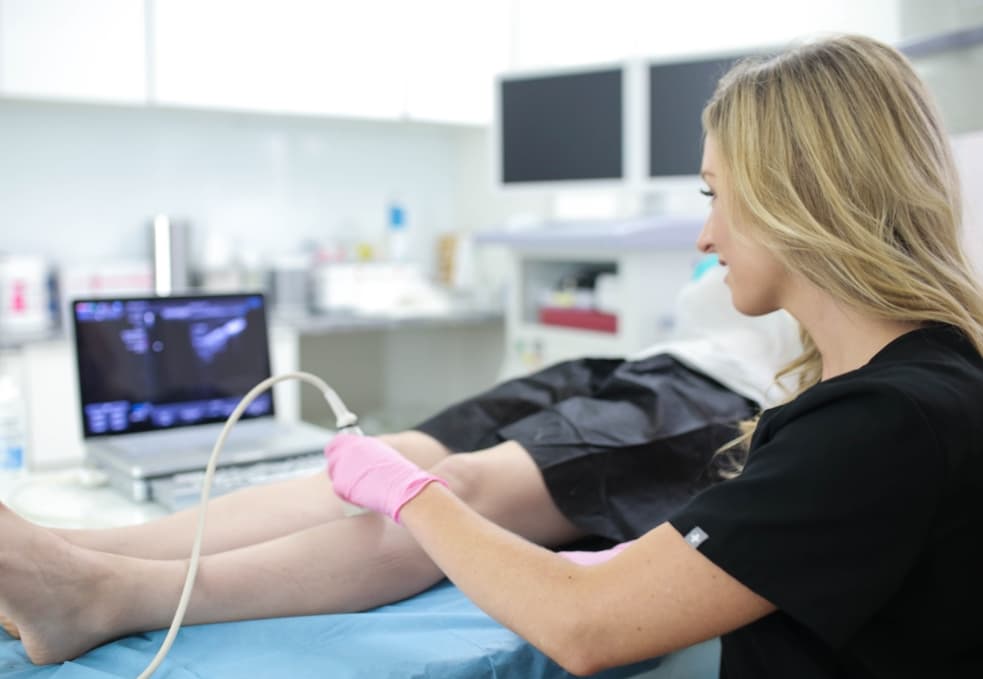If you’re wondering whether or not you should get your varicose veins treated, you’re not alone. Varicose veins are a common condition that affects millions of people around the world. While they may not always be a serious medical concern, they can cause discomfort, pain, and swelling in the legs. Furthermore, if left untreated, varicose veins can lead to more serious conditions such as chronic venous insufficiency (CVI) and venous stasis ulcers. In this article, we will discuss how Long Island Vein Center, a group of vein centers led by board-certified vein doctors, can help treat venous insufficiency in the legs.
What is Venous Insufficiency?
Venous insufficiency occurs when the valves in the veins of the legs do not function properly, leading to the accumulation of blood in the veins. The veins are responsible for carrying deoxygenated blood back to the heart, and the valves in the veins prevent the backward flow of blood. In venous insufficiency, the valves do not function properly, which results in blood flowing backward and pooling in the veins.
When blood pools in the veins, it increases the pressure inside the veins, causing them to become stretched and dilated. This results in the formation of varicose veins and spider veins. In addition to these visible signs, venous insufficiency can also cause symptoms such as pain, swelling, and leg ulcers. There are several factors that can contribute to venous insufficiency, including genetics, age, pregnancy, obesity, and a sedentary lifestyle.

How Do We Diagnose Venous Insufficiency?
At Long Island Vein Center, we use state-of-the-art technology to diagnose the root cause of venous insufficiency. Vascular imaging and duplex ultrasound are non-invasive diagnostic tools that allow us to visualize the blood flow in the veins and identify any areas of blockage or reflux. These diagnostic tests are painless and do not require any downtime, allowing you to return to your normal activities immediately after the appointment.
Once we have diagnosed the root cause of your venous insufficiency, we will curate a personalized treatment plan that targets the specific problem areas. This may include a combination of minimally invasive procedures such as sclerotherapy, endovenous laser ablation, radiofrequency ablation, VenaSeal, ClariVein, and ambulatory phlebectomy, as well as lifestyle modifications such as wearing compression stockings and increasing physical activity.
During the initial consultation, we will also ask about your medical history and any symptoms you may be experiencing. This information helps us to better understand your unique needs and goals, and to create a treatment plan that is tailored specifically to you. Our team of board-certified vein doctors is dedicated to providing personalized, compassionate care to each and every patient, and we look forward to helping you achieve healthier, happier legs.
Do Varicose Veins Cause High Blood Pressure?
While varicose veins are often associated with high blood pressure, they do not actually cause it. However, high blood pressure can contribute to the development of varicose veins by putting extra pressure on the veins in the legs. Additionally, if you have varicose veins, you may be at a higher risk of developing high blood pressure due to the extra strain on your circulatory system.
Does High Blood Pressure Cause Varicose Veins?
Similarly, while high blood pressure can contribute to the development of varicose veins, it does not actually cause them. However, if you have high blood pressure, you may be at a higher risk of developing varicose veins due to the extra strain on your circulatory system.
Treating Venous Insufficiency
At Long Island Vein Center, we specialize in minimally invasive procedures for the treatment of varicose veins and other venous insufficiency conditions. Our team of board-certified vein doctors will work with you to create a personalized treatment plan that meets your unique needs and goals.
Compression Therapy
One of the most common treatments for venous insufficiency is compression therapy. This involves wearing compression stockings or socks that help improve circulation in the legs. Compression stockings work by applying pressure to the legs, which helps to improve blood flow and prevent blood from pooling in the leg veins. While compression stockings can improve blood flow and prevent the condition from worsening, they can’t treat the underlying problem. The only way to treat venous insufficiency is with minimally invasive procedures.
Minimally Invasive Procedures
We offer a variety of minimally invasive procedures to improve blood flow and reduce the appearance of varicose veins. These procedures include:
- Sclerotherapy: This involves injecting a solution into the affected veins, which causes them to collapse and eventually fade away.
- Endovenous Laser Ablation (EVLA): This procedure uses laser energy to close off the affected vein, which helps to reroute blood flow to healthy veins.
- Radiofrequency Ablation: Similar to EVLA, this procedure uses radiofrequency energy to close off the affected vein.
- VenaSeal: This is a newer procedure that involves using medical adhesive to close off the affected vein.
- ClariVein: This procedure uses a rotating catheter to deliver medication to the affected vein, which helps to close it off.
- Ambulatory Phlebectomy: This involves making small incisions in the skin to remove the affected varicose veins.
Which Procedure is Right for You?
The best treatment for your venous insufficiency will depend on a variety of factors, including the severity of your condition, your medical history, and your personal preferences. At Long Island Vein Center, our board-certified vein doctors will work with you to determine the best course of treatment for your individual needs.
Choosing the Best Vein Center
When choosing a vein center for the treatment of your varicose veins, it’s important to look for a center that specializes in minimally invasive procedures and is led by board-certified vein doctors. At Long Island Vein Center, we only offer minimally invasive spider vein and varicose vein treatments, such as sclerotherapy, endovenous laser ablation, radiofrequency ablation, VenaSeal, ClariVein, and ambulatory phlebectomy. Our team of board-certified vein doctors has extensive experience in the field of venous insufficiency and is committed to providing the highest level of care to our patients.
In addition to our expertise, we also offer free insurance verification even before the first appointment, so you can have a clear understanding of your coverage and costs upfront. We have several convenient locations across Long Island, including West Islip, Jericho, Hampton Bays, and Port Jefferson, making it easy for you to access the care you need. Contact us today to schedule a consultation at your nearest vein center in Long Island and take the first step toward healthier legs.

